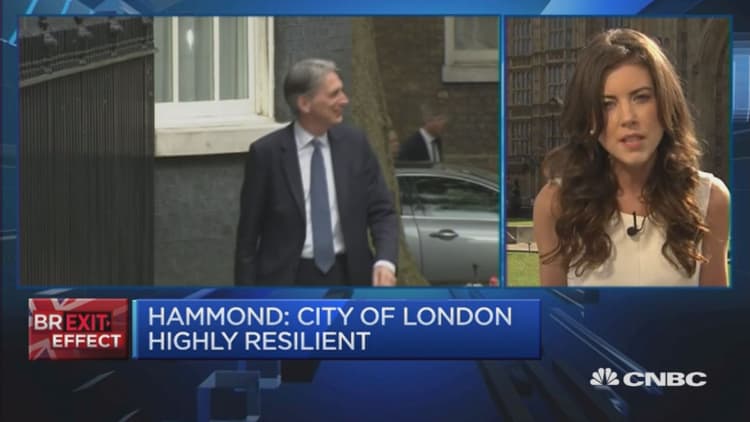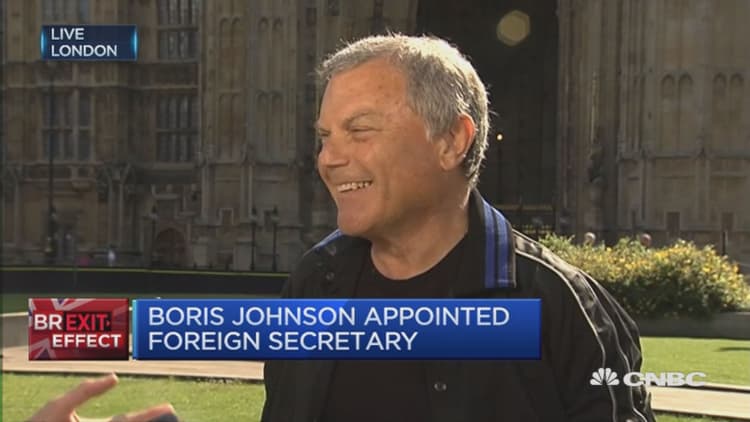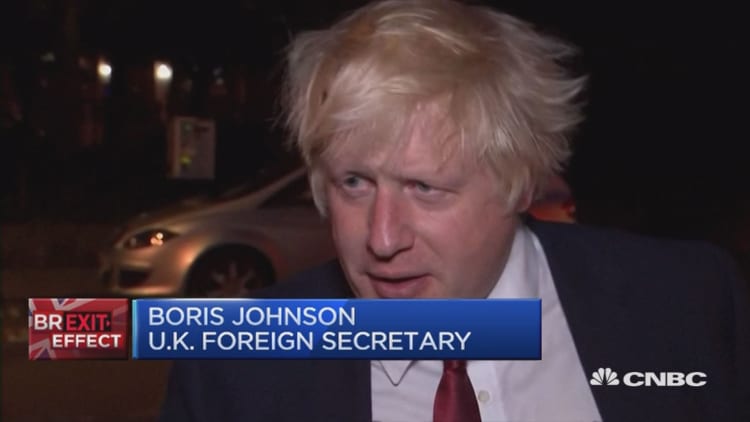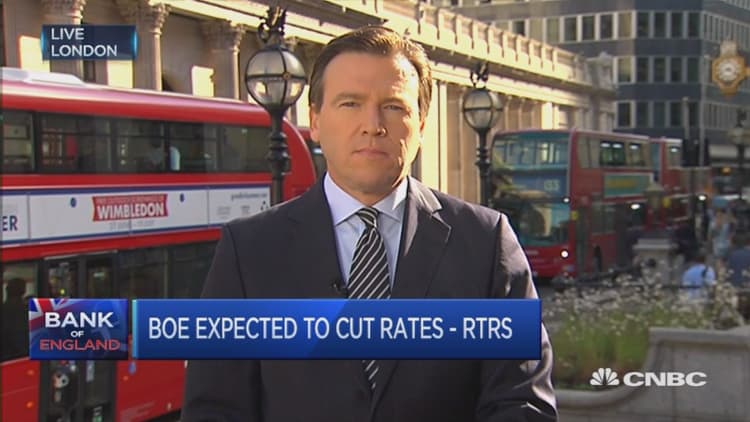
With fresh new faces arriving at the nucleus of British politics, a clearer picture has emerged of what the negotiations between the European Union and the U.K. could look like and what a so-called could Brexit mean for the country.
Staunch "Brexiteer" David Davis will now head up a new department as Secretary of State for Exiting the European Union. The veteran Conservative politician was foreign office minister in 1994, where he was responsible for government negotiations on Europe and NATO enlargement.
New Prime Minister Theresa May has so far played her cards very close to her chest. She has loosely iterated that a "Brexit means Brexit" but has refrained from even guaranteeing the future of non-EU citizens that are currently residing in the U.K. Instead, she has hinted that she will wait until the end of the year to trigger Article 50 - which begins the two-year process of exit negotiations - and has concentrated on major social reforms that have become a by-product of the referendum.
'The ideal outcome'
However, Davis has been much more forthcoming on his views for a Brexit.
"The ideal outcome, is continued tariff-free access (to the EU's single market). Once the European nations realize that we are not going to budge on control of our borders, they will want to talk, in their own interest. There may be some complexities about rules of origin and narrowly-based regulatory compliance for exports into the EU, but that is all manageable," he said in an opinion piece for the news blog ConservativeHome on Monday.
Davis seems to have a plan A and a plan B and wants the U.K. to focus a little more on exports rather than domestic consumption. But negotiations are likely to be tough as countries like France and Italy don't want to fuel Euroskeptic campaigns in their own countries. In the first instance, Davis wants to try to keep access to the EU's treasured single market. However, this will be politically difficult as it would likely mean keeping the free movement of people and immigration was seen as a key reason many voted to leave the European Union.
Like May, Davis believes the government should take a little time before triggering Article 50. In the meantime, he believes a negotiating strategy should be "properly designed" which includes input from Scottish, Welsh, and Northern Irish governments and also major unions from sectors like farming and financial services.
"We should work out what we do in the improbable event of the EU taking a dog in the manger attitude to single market tariff free access, and insist on WTO rules and levies, including 10 percent levies on car exports," Davis added in his blog post.
Plan B



This plan B involves his claim that the British government will be in receipt of over £2 billion ($2.6 billion) of levies on EU cars alone - if it is kicked out into the World Trade Organization (WTO) wilderness. Therefore, there is nothing to stop the U.K. supporting its indigenous car industry using this cash, he adds.
"WTO rules would not allow us to explicitly offset the levies charged, but we could do a great deal to support the industry if we wanted to," he said, adding that the package could also include research support, investment tax breaks, lower vehicle taxes.
"Such a package would naturally be designed to favor British consumers and British industry. Which of course is another reason that the EU will not force this outcome, particularly if we publicize it heavily in a pre-negotiation white paper (a U.K. government proposal)," he added.
Following the appointment of the new cabinet this week - which includes other prominent "leave" campaigners - analysts at Citi suggested that it would limit the willingness to compromise on red lines on both sides, at least initially.
With EU exit negotiations being led by Davis, it's less likely the U.K. will opt for a relationship that Norway has with the EU which includes the free movement of people, according to Citi.
"(This makes a) 'WTO-plus' free trade agreement more likely. However, both the negotiating team and the strategy could still change over time," the team of political analysts, said in a note Thursday.


